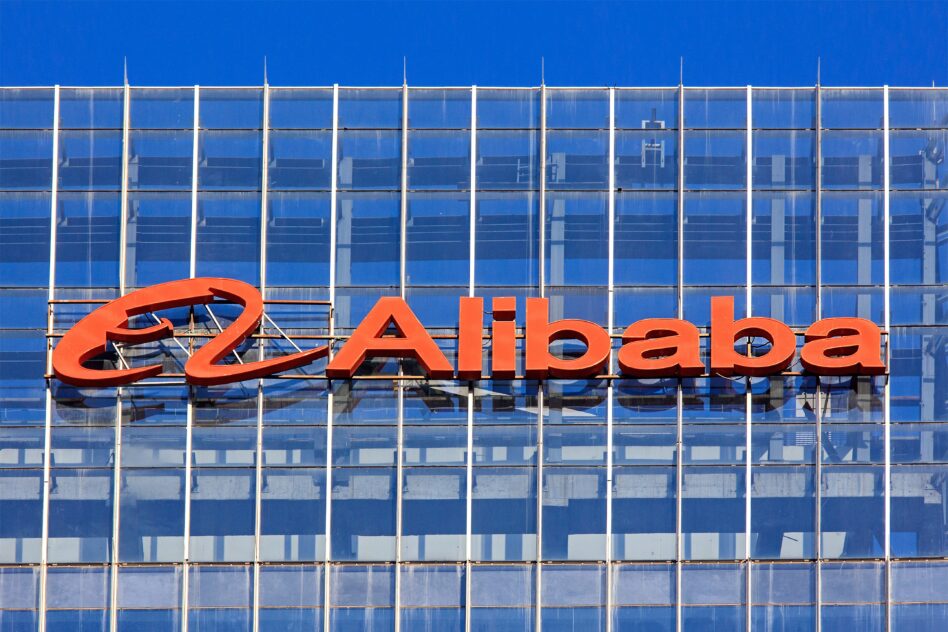
Image credit: testing/Shutterstock.com/
The announcement comes one day after the Chinese tech giant’s co-founder Jack Ma returns to mainland China
Alibaba Group Holding Ltd., the Chinese multinational tech company based out of Hangzhou China, just revealed its new business plan to split into six separately run organizations. This is the company’s biggest structural overhaul to date and may have some serious consequences as a result.
The news that Alibaba will now become a holdings company was announced just one day after the company’s co-founder Jack Ma was spotted back in mainland China after nearly a year away.
Alibaba’s large scope of operations will now be divided into six separate sectors: Chinese e-commerce, global e-commerce, cloud, digital mapping and food delivery, logistics, and media and entertainment.
Each of the six groups will have an independent CEO at their helm who will report to each separate board of directors. Each CEO will be fully responsible for their area’s own performance; however, the overall domestic commerce of the business will remain an entirely owned component of Alibaba.
According to a letter issued to Alibaba employees, all of the newly created departments will be free to devise their own fund-raising strategies and pursue initial public contributions in the near future.
The announcement can be seen as one influenced by the actions of Western tech giants such as Google and others, who also recently created separate holding companies in an attempt to drive business growth.
The announcement from Alibaba can also be seen as a consequence of Beijing looking to revive business owners’ trust, in the wake of heavy Covid-19-based regulatory clampdowns and restrictions.
According to experts, Alibaba’s shares and listing status in both the New York and Hong Kong markets won’t be affected very much. It was first reported back in 2021, that Alibaba had begun to delegate operations among its business units, paving the way for potential spinoffs and self-reliant fundraising moving forward.
Alibaba’s new business restructure is an effort to build a more adaptive internal corporate structure and reverse the centralization strategy started back in 2018. The strategy then was to bring the company’s many affiliates closer together, as part of the ‘Alibaba Economy’.
The company’s new model now hopes to entitle and empower all of Alibaba’s business avenues with greater versatility, enhanced decision-making capabilities, and faster responses to the ever-changing market.
Although the announcement can’t be proven as a direct result of its co-founder’s return to China, there can be no doubt that Alibaba is making some big moves that will impact the industry moving forward.

Image credit: testing/Shutterstock.com/
The announcement comes one day after the Chinese tech giant’s co-founder Jack Ma returns to mainland China
Alibaba Group Holding Ltd., the Chinese multinational tech company based out of Hangzhou China, just revealed its new business plan to split into six separately run organizations. This is the company’s biggest structural overhaul to date and may have some serious consequences as a result.
The news that Alibaba will now become a holdings company was announced just one day after the company’s co-founder Jack Ma was spotted back in mainland China after nearly a year away.
Alibaba’s large scope of operations will now be divided into six separate sectors: Chinese e-commerce, global e-commerce, cloud, digital mapping and food delivery, logistics, and media and entertainment.
Each of the six groups will have an independent CEO at their helm who will report to each separate board of directors. Each CEO will be fully responsible for their area’s own performance; however, the overall domestic commerce of the business will remain an entirely owned component of Alibaba.
According to a letter issued to Alibaba employees, all of the newly created departments will be free to devise their own fund-raising strategies and pursue initial public contributions in the near future.
The announcement can be seen as one influenced by the actions of Western tech giants such as Google and others, who also recently created separate holding companies in an attempt to drive business growth.
The announcement from Alibaba can also be seen as a consequence of Beijing looking to revive business owners’ trust, in the wake of heavy Covid-19-based regulatory clampdowns and restrictions.
According to experts, Alibaba’s shares and listing status in both the New York and Hong Kong markets won’t be affected very much. It was first reported back in 2021, that Alibaba had begun to delegate operations among its business units, paving the way for potential spinoffs and self-reliant fundraising moving forward.
Alibaba’s new business restructure is an effort to build a more adaptive internal corporate structure and reverse the centralization strategy started back in 2018. The strategy then was to bring the company’s many affiliates closer together, as part of the ‘Alibaba Economy’.
The company’s new model now hopes to entitle and empower all of Alibaba’s business avenues with greater versatility, enhanced decision-making capabilities, and faster responses to the ever-changing market.
Although the announcement can’t be proven as a direct result of its co-founder’s return to China, there can be no doubt that Alibaba is making some big moves that will impact the industry moving forward.



